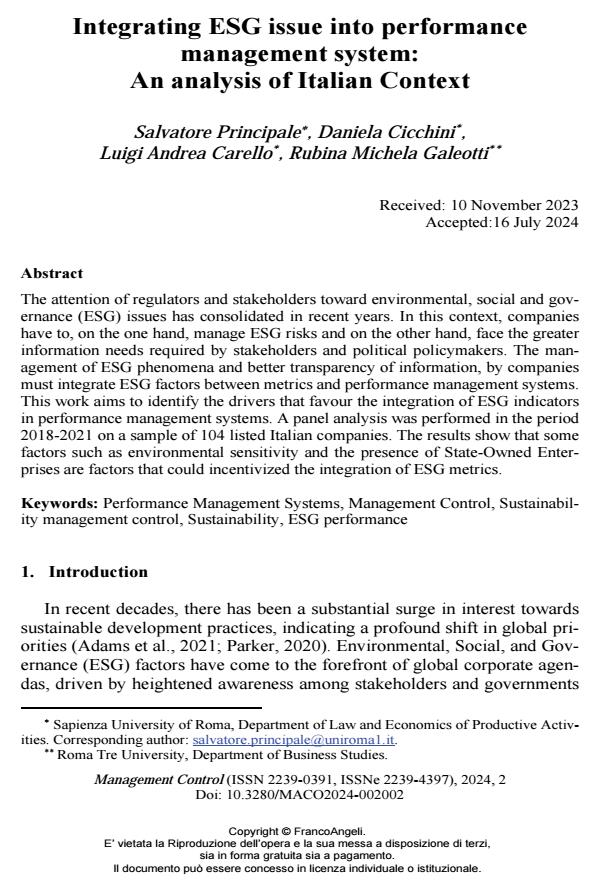Integrating ESG issue into performance management system: An analysis of Italian Context
Journal title MANAGEMENT CONTROL
Author/s Salvatore Principale, Daniela Cicchini, Luigi Andrea Carello, Rubina Michela Galeotti
Publishing Year 2024 Issue 2024/2
Language English Pages 24 P. 15-38 File size 320 KB
DOI 10.3280/MACO2024-002002
DOI is like a bar code for intellectual property: to have more infomation
click here
Below, you can see the article first page
If you want to buy this article in PDF format, you can do it, following the instructions to buy download credits

FrancoAngeli is member of Publishers International Linking Association, Inc (PILA), a not-for-profit association which run the CrossRef service enabling links to and from online scholarly content.
Keywords: Performance Management Systems, Management Control, Sustaina-bility management control, Sustainability, ESG performance
Salvatore Principale, Daniela Cicchini, Luigi Andrea Carello, Rubina Michela Galeotti, Integrating ESG issue into performance management system: An analysis of Italian Context in "MANAGEMENT CONTROL" 2/2024, pp 15-38, DOI: 10.3280/MACO2024-002002